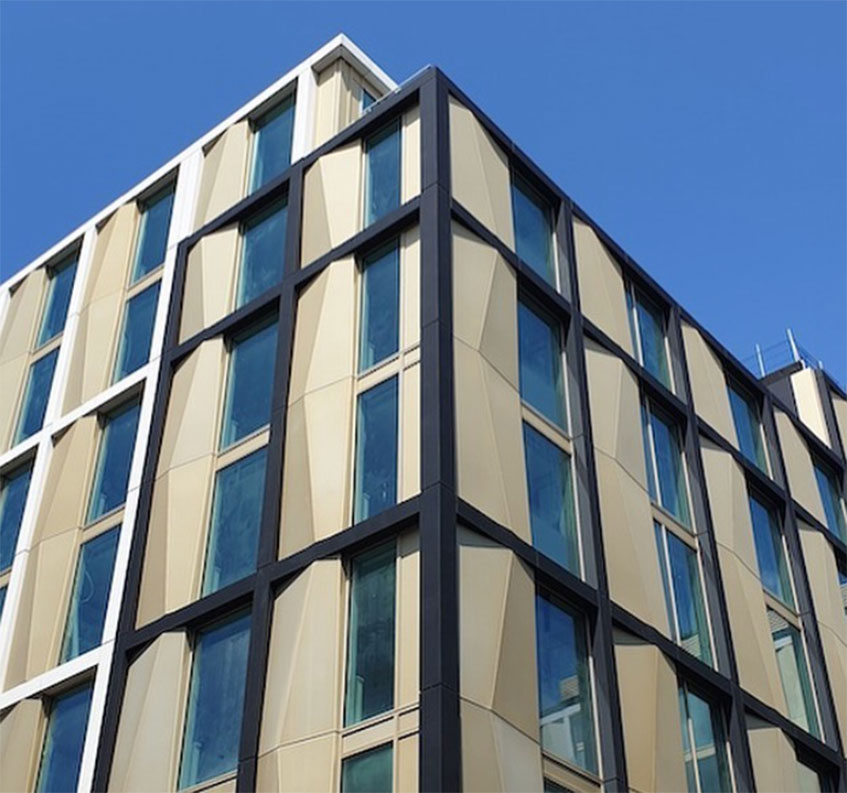September sees the start of the new academic year, and freshers’ week marks the start of a three-year education for tens of thousands of university students.
Students, many of which are away from home for the first time, are recognised as a potentially vulnerable social group. Wellbeing and mental health are now mainstream conversations, with public figures including Prince Harry, Kate Middleton and ex-Wasps rugby player Kearnan Myall telling of their stories and struggles.
This generation of students are growing up with these conversations being the norm, and this is feeding into their expectations of a university experience. Purpose-built student accommodation providers therefore need to proactively consider their customers’ needs and how wellness can tie into student accommodation.
This year marked the first increase in three years for applications for university places, according to UCAS. Some 35% of UK students live in purpose-built student accommodation, and data suggests that full-time student numbers currently outweigh the accommodation available. Although universities own 69% of existing PBSA, the private sector has an opportunity to plug the gap between supply and demand.
Meeting expectations
For developers to be the preferred choice, they need to create environments that will support students in their academic performance as well as enhance their university experience. Long gone are the days of the typical take it or leave it student digs; students now expect quality, service and value.
Octopus Real Estate champions the growth of the PBSA sector. We make some of our biggest loans in this sector, which has grown into the mainstream over the past decade and is no longer deemed alternative.
As a market advocate, we recently conducted a survey of more than 1,100 UK students, aiming to identify how quality PBSA can support them. The results were striking. Throughout every year of university, living in PBSA makes for better grades and wellbeing. Those in PBSA are 26% more likely to report top grades in their first year, and the trend continues throughout, compared with those living in halls of residence. Ultimately, better accommodation results in better grades.
Students are also prepared to pay for high-quality accommodation. Three-quarters of students would pay an average of £115 extra per month for a private bathroom, 68% would pay an average of £92 extra per month to have their own cooking facilities, and 57% would pay an average of £79 per month for a gym as part of their accommodation. Notably, international students place even more emphasis on these elements than their UK counterparts.
The appetite for these facilities gives room for developers to expand plans and deliver better, more affordable PBSA to more students. The Project, in Hoxton, is a great example of this. This mindset is not confined to developers – universities with campuses are also adjusting their real estate strategies and retiring old stock to reflect these views.

The UK’s global reputation for educational excellence is long established, as evidenced by The Times Higher Education World University Rankings 2019, which includes seven UK universities in the top 50.
According to UCAS, in 2018 more than 26,000 students from the EU were accepted to study in the UK, alongside a record 31,510 students from outside the EU. Depending on the Brexit outcome, the number of EU students may fall – however, this only accounts for 7% of the UK’s student population, and any further relaxation of immigration policies post-study could make up for the shortfall. Meanwhile, international students are likely to continue to be attracted to the UK, with the potentially weaker pound also a contributing factor.
The PBSA sector is a resilient one and is relatively insulated from Brexit; previous recessions have also shown that student accommodation is a strong countercyclical investment.
Much like any high-quality significant development, PBSA does come with its own hurdles. Site placement is key, and planning permission can be difficult to obtain, particularly in London. Developers are also facing rising labour and construction costs due to the reliance on EU imports. However, the softening of house prices has made it easier to buy land.
Octopus Real Estate is passionate about the PBSA sector, knowing it is key to the UK’s strength and continued standing in the world. In meeting market demands, developers can deliver vital services to emerging generations, and contribute to our economic future.
Gavin Eustace is head of residential development at Octopus Real Estate











